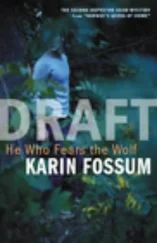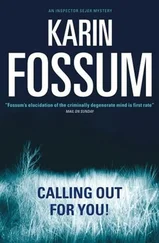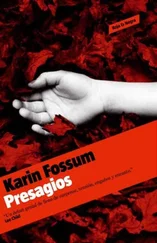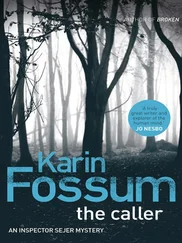'I'm still waiting for him, I wait every hour of the day, I wait as I lie in my bed, I wait as I cook, inside my head I hear my own voice crying out for Edwin. I'm convinced he'll be coming down the road soon with his rolling walk. I keep looking out of the window. I listen out for steps, or the door slamming. Whenever I hear a car pull up, my heart skips a beat. It might be the police or the vicar. I don't want the vicar to come round. I don't know what I'll do if he turns up. I used to go out a lot, now I mainly stay in. I can't bear to meet people. They look at me with compassion, but they avoid me because they don't know what to say. Imagine if they had dared to approach me! Hug me and comfort me. How are you? Is it bad? Is there anything I can do? But people are scared of feelings, that I might burst into tears, that they'll stand there not knowing what to do. I would rather have a grave than this uncertainty. The way things are now, there is nothing I can do for him. The feeling of powerlessness is overwhelming. It's all grief and despair and guilt, it's all emptiness and pain. What kind of life is this? I have Ingemar, of course, but he can't bring Edwin back to me. Still, he's the only one who can make me forget for a few brief seconds, the only one who can make me laugh. Afterwards I'm shocked that I could. It's as if I'm letting Edwin down in the worst way possible by being happy.'
Sejer was often found hunched over the file, reading.
On the wall to the right of his desk hung a photo of Edwin as a constant reminder and sometimes Sejer would look up and ask him, 'What did you do, what happened to you?' He visited Alex Meyer. Meyer was happy to admit that Edwin had been a frequent visitor, sometimes with Sindre, or Sverre and Isak. Meyer had a steady gaze, as befits a man who has both confidence and a clear conscience. He talked about his class and everything they were going through. The children were having trouble sleeping. Parents had reported cases of bedwetting.
'We'll never know the full extent of this,' Meyer said. 'The children are really struggling to cope.'
Sejer changed his approach and studied Ingemar Brenner's fraud convictions. Brenner was the only person in Edwin's circle with a criminal record. The man had a dubious talent as a con artist, but it was a big leap from financial crime to killing a child. Even if Edwin had been in his way. He asked Brenner to come to his office and he arrived at the agreed time. Sejer noticed his cream shirt and his shiny wine-coloured tie. Brenner was a man who went around relishing his own excellence. He was, in contrast to Brein, undeniably a good-looking man and he knew it. He was also brutally honest when it came to Edwin.
'I don't care much for kids,' he said. 'I don't mind telling you. They're unpredictable and I can't stand that.'
'You like being in control?' Sejer asked.
'I've never enjoyed being a spectator.'
'And whenever Edwin was in the room, that's exactly what you became?'
Brenner gave him a self-satisfied smile.
'I lecture,' he said. 'I'm used to an audience. I talk and people listen, you could hear a pin drop. And there's Tulla, of course, I've got her eating out of my hand.'
'Wouldn't you agree,' Sejer said, 'that your hands have got you into trouble before?'
Brenner stopped smiling.
'That's none of your business.'
'Perhaps not,' Sejer said, 'but we notice things and we draw conclusions.'
'You need to separate what has happened to Edwin from what my, formerly, generous girlfriends decided to give me,' he said. 'A woman scorned will send you to the gallows, given half a chance.'
'The court didn't buy your version of events,' Sejer said, 'and neither do I. Tell me, what's your opinion of Edwin? What do you think happened to him?'
Brenner grew serious.
'It's obvious, isn't it?' he said. 'And excuse me for being so blunt. Of course, I haven't said this to Tulla, but like you, I think the following happened. Someone dragged Edwin into a car and drove him to the forest, where he was assaulted and later strangled. Or he had his head bashed in with a rock, what do I know? Afterwards he was dumped in a lake or maybe buried. It's a waste of time to speculate if he's still alive, I've no time for false hopes.'
'You don't like children, but are you fond of Edwin?'
'Let me put it this way, I'm used to him being there,' Brenner said. 'I'm used to him constantly eating, constantly begging. I'm used to the fact that he doesn't like me, that he thinks he has a monopoly on Tulla and that's wrong, of course. And it's their relationship that has turned him into what he is.'
'And what is he?'
'Well,' Brenner hesitated, 'a jam doughnut that keeps growing bigger and bigger.'
'Have you thought about moving in with Tulla?'
'I have.'
'Why haven't you done so?'
'I didn't want to become involved with Edwin's problems.'
'So you think of him as a problem?'
Brenner's hand checked and adjusted the knot in his tie.
'He's ten years old and he weighs nearly ninety kilos,' he said. 'Is there any other way of looking at it?'
A merciless winter hit the south-eastern parts of the country. The weather was relatively mild, but there were huge amounts of snow, wet and heavy snow that caused chaos on the roads, and people clearing their drives did their backs in. It snowed for weeks. When it finally stopped and the sky turned blue, the frost came and stayed for a month. People looked pessimistically at the gigantic snowdrifts. They will never melt, they thought, but then came April and suddenly it turned warm. People poured out of their houses lacking in everything: light, heat and fresh air. Tender dreams were formed. Perhaps life's worth living after all, they thought.
On one of these mild days Sejer drove up to visit Tulla Åsalid. He parked in her drive and noticed that the kitchen window was open, and as he got out of his car he heard a trickling laughter. He stopped to listen, confused, but then all he could hear was the wind playing with the treetops. How could she laugh like that? She had lost her most precious possession. Or was Ingemar her most precious possession; was she crazy, like her parents had said? He walked up to the house and rang the bell. It took a while before she opened. She started by apologising. She had been on the telephone.
Sejer explained why he had come.
'It's none of my business who you see,' he said cautiously, 'but when it comes to Brenner, then don't trust him with your money.'
She gave him a perplexed look. 'Why not?'
'Have you already done so?' he asked.
'No, of course not. Why would you say something like that?'
'Please don't ask me to go into detail,' he said. 'I don't like to expose people. I've come to give you some advice and I hope you'll take it.'
At this she looked haunted. She invited him in and they talked for half an hour. In the car on his way back he thought once more of her trickling laughter which he had heard through the window. Dear Lord, he thought, I can't blame her for having one moment of happiness. But still he could not shake it off, her laughter was like a sting and it troubled him.
Wilfred Arent Brein watched life go by from the window of his prison cell. He had settled in well. True, he fawned like a dog to the other prisoners, he kept his head down and he spoke in a low, mumbling voice. He was scared of their condemnation and waited on them like a servant. He lent them money and gave them cigarettes. This was how he managed to be left in peace and that was what he wanted. The day was divided into fixed routines. He liked the workshop and he liked the food. He liked helping out in the kitchen, all the smells and the heat from the cooker, the huge, steaming, bubbling pots.
He slept fairly well at night, curled up on his bunk in a foetal position. He was serving ten years. On completing his sentence he would be released back into the community, back to his lonely existence on benefits, the same man with the same passion for young boys. He rarely thought about the day he would be released; life on the outside did not appeal to him. No one would welcome him, he would be left to his own devices, his own pain and his own urges. All things considered, prison life was not as bad as he had imagined. Every now and then a prison officer would stop by for a chat. Then he would come alive and talk himself warm about this and that, about his father whom he should have supported, the last book he had read, which had a sad ending. Society had already forgotten about him. New murders had been committed, new crimes that had been carefully planned, simple economic crimes for personal gain, which were obviously far worse that his own deed, which he had not wanted to commit anyway. He was driven by his passions. He was adamant when it came to this. It was the notion that saved him, which meant that he could sleep at night. He slept a dreamless sleep.
Читать дальше












